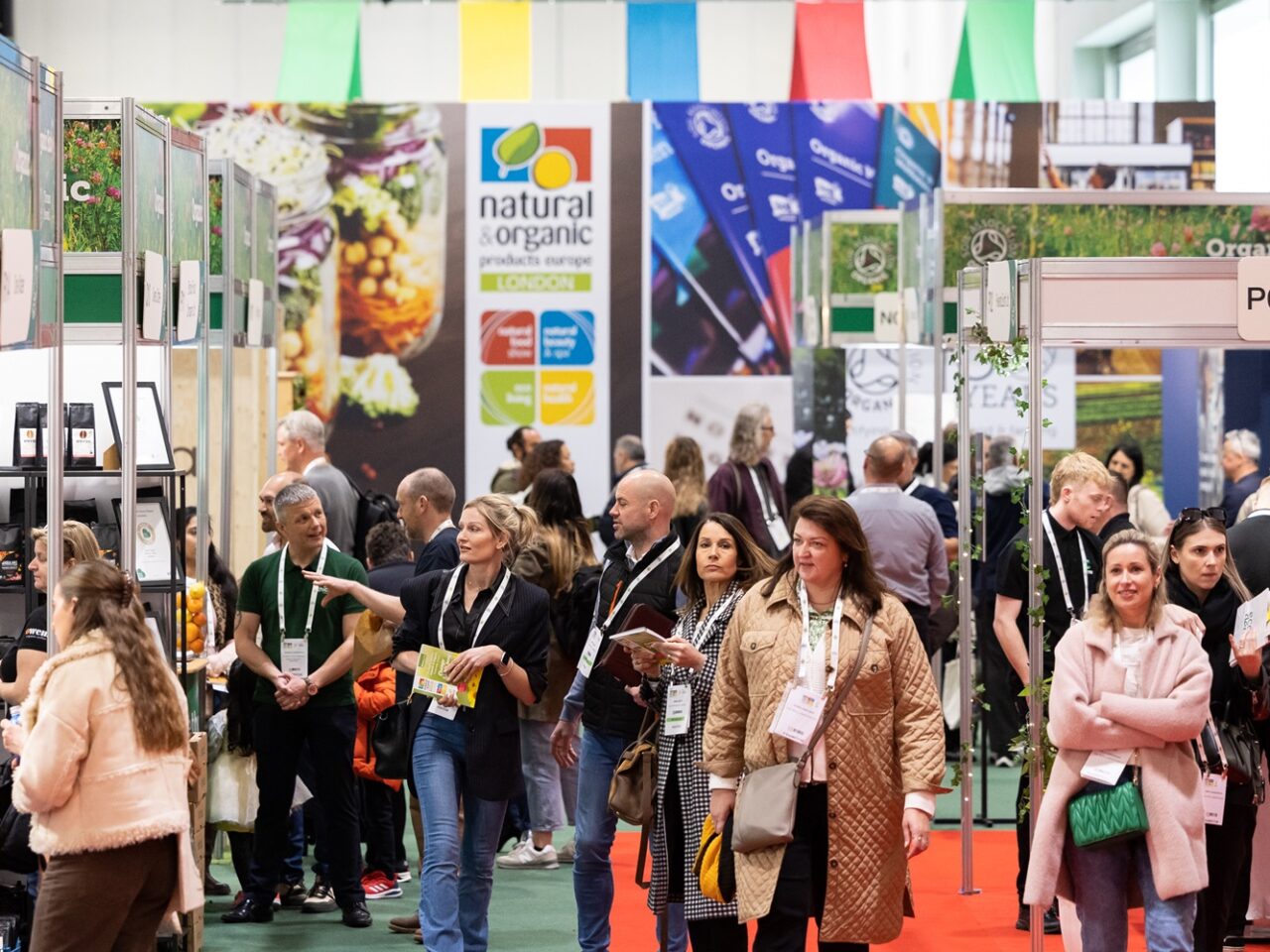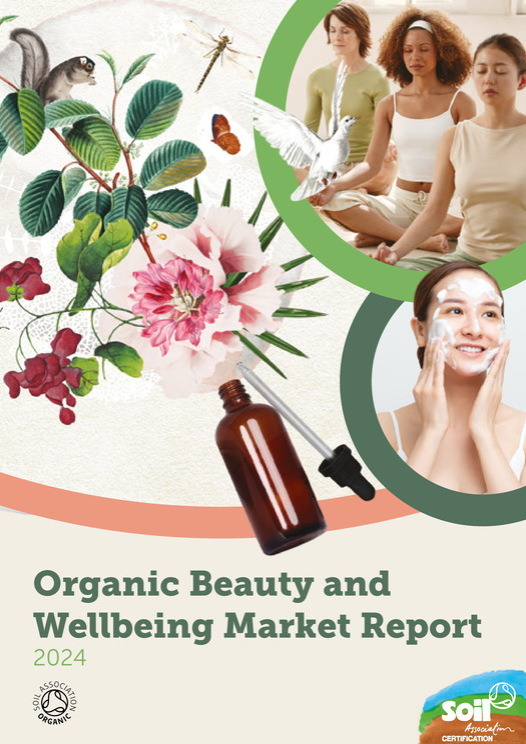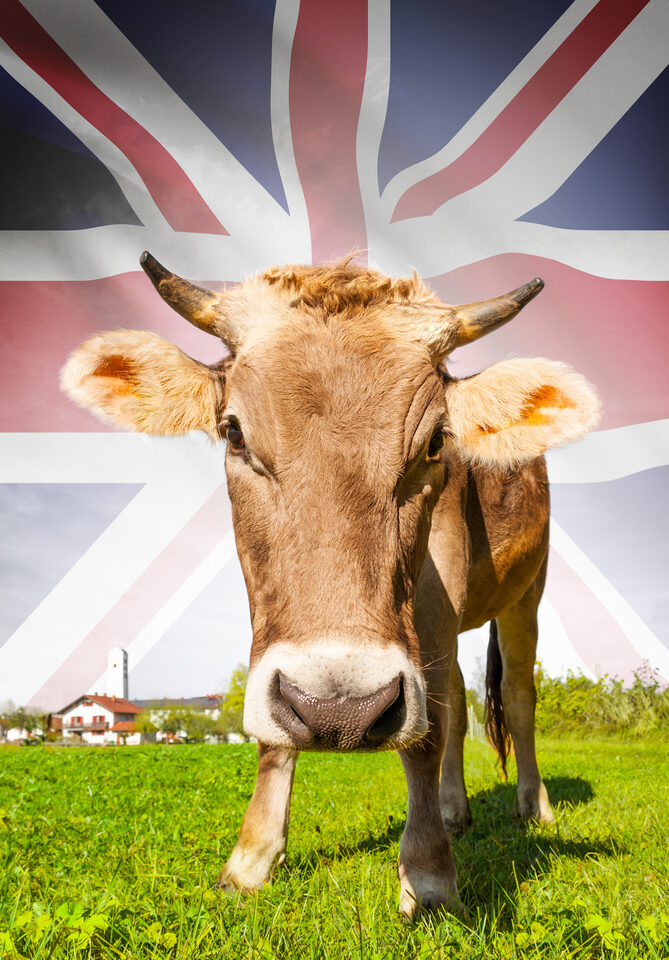
Natural & Organic Products Expo (NOPEX) has announced this year’s seminar programme for when it returns to ExCeL London on 14-15 April. With over 50 industry experts confirmed, including senior professionals from Waitrose, Holland & Barrett, Planet Organic, Marks & Spencer, Abel & Cole, ScoreApp, Soil Association, and IFOAM Organics, the show organisers have stated that it is their “best ever” speaker line-up.
All talks at the show are free to attend and will cover topics like Net Zero, inclusivity, sustainable retail, organic farming, vegan shopping, global product trends, and more – offering buyers and industry professionals an insight into the fast-moving trends within natural, organic and sustainable food and health.
Unmissable headliners
Retail expert, broadcaster and author Mary Portas will headline the show, as well as Planet Organic’s founder Renée Elliott. Co-founder of ScoreApp and best-selling author, Daniel Priestley has also been confirmed.
Sponsored by Viridian Nutrition, Daniel Priestley will advise how indie retailers can use their skills and experience to create a loyal and committed following in a community. By spotlighting issues that mean something to a target audience, this talk will help attendees become a key person of influence (14 April, 1pm).
Big name retailers
Leading retailers like Holland & Barrett and Waitrose will also take to the stage. Titled ‘How to Keep a 150-Year-Old Business Alive,’ Rachel Chatterton, Head of Food and Beverage Development at Holland & Barrett, will explore the challenges on the UK high street and will share insights into how H&B approach food development, the criteria for working with new suppliers and where they plan to take their food range in the future (15 April, 2:15pm).
Oliver Chadwyck-Healey, Branded Innovation Manager at Waitrose & Partners will give a brief insight into the way buyers and the Branded Innovation team at Waitrose work – in his session titled ‘What makes Waitrose, Waitrose’. He’ll talk about the retailer’s targets and motivations that they work to, as well as the pressures and constraints (15 April, 11:15am).
Attendees should also attend a session with Mike Barry, Former Director of Sustainable Business at Marks & Spencer. Mike Barry will delve into what it looks like to build a sustainable food system for the future. He’ll also look at trends that bigger businesses are already adopting and what else can be done to see change at the rate that we need it (14 April, 2:30pm).
Panels on timely topics
As well as keynotes, attendees can look forward to engaging with some of the industry’s most influential names and discussing cutting-edge topics in a range of panel sessions. With Net Zero targets to think about, Lee Holdstock (Soil Association Certification); Charles Redfern (Organico Realfoods); Ed Ayton (Abel & Cole), and Matthew Unerman (Compassion in World Farming) will be on an important panel titled Net Zero and Beyond (14 April, 4pm).
European organic advocates, IFOAM will host a panel on the organic market. Hear from organic experts Soil Association Certification the highlights of the 2024 Organic Market Report and join leading voices from the organic movement in Europe to hear how they are supporting the organic sector and the industry wide vision making organic accessible and affordable for all (15 April, 3pm).
Joanna Wierzbicka, Deputy Director of IFOAM Organics Europe: “IFOAM Organics Europe is pleased to cooperate with Natural and Organic Products Expo. Our partnership combines knowledge and passion to promote the growth of the organic sector in the UK, and beyond. I am looking forward to the session, where we will be delving into European market data and engaging in discussion on challenges and opportunities of the organic industry growth in the UK. IFOAM Organics Europe proudly joins the event, committed to strengthening our organic community.”
Lastly, visitors can join an exciting panel titled ‘Breaking Barriers: Empowering Black Founders in Retail’ to hear the challenges and opportunities that three business leaders have faced and their top tips for success (15 April, 4pm).
For more information and to view the full schedule, visit www.naturalproducts.co.uk/seminars-main-stage.

The UK’s organic beauty and wellbeing market experienced an eight per cent decline in sales last year, the Soil Association’s 2024 Organic Beauty and Wellbeing Market Report reveals. This was the first year that the market experienced a decline in sales following 12 consecutive years of growth.
Over 60 per cent of Soil Association Organic certified beauty and wellness brands agree that the cost of living crisis continues to be the number one factor impeding the growth of potential businesses. Other factors that have contributed to the downturn of the market include the war in Ukraine, hangover from the pandemic and the effects of Brexit. The report also notes that a challenging regulatory environment and a lack of regulation has added to these challenges.
The report states that the certified organic market is currently facing a challenging economic climate and disruption to supply chains, which the certified organic beauty and wellbeing market has not been immune. One quarter of Soil Association Organic certified beauty and wellness brands cite the impact of greenwashing for negatively effecting their businesses, while another quarter have been affected by import and export issues – the effects of Brexit are estimated to have wiped £850m from the UK beauty industry’s export market.
However, within the sector some categories have seen strong performance in 2023, with Mother and Baby Care growing by an impressive 65 per cent. This is a strong category for organic where it is over-indexed in baby food, with two thirds of baby food products in the UK being certified organic. Another area that experienced a boost in sales was Health and Personal Care products, which grew by six per cent. This includes oral care, deodorants, feminine hygiene, medical devices and supplements, which reflects a wider market trend that has seen consumers prioritise products with a healthcare focus.
While 2023 was undoubtedly a tough year for many certified organic beauty and wellbeing brands, 2024 looks more positive with 90 per cent of Soil Association certified brands anticipating growth in the year ahead.
You can download the full report for free HERE.

The Environment Secretary has launched new proposals to give shoppers more information about how and where their food is produced.
A major consultation has been launched on proposed reforms to food labelling, ensuring consumers know exactly what’s in their shopping baskets, that will reward high-quality, high-welfare food to ensure British farmers’ products get the recognition they deserve.
The proposals for fairer food labelling will ensure greater transparency around the origin of food and methods of production, helping consumers make decisions that align with their values.
The consultation looks at how to improve country of origin labelling for certain goods, including how and where this information is displayed and what products should be included. For example, if imported pork is cured into bacon in the UK and features a Union Jack, exploring ways to make it more obvious to consumers that the pig was reared abroad, such as increasing the size of the country of origin text, or placing it on the front of the packet.
It also sets out proposals to require ‘method of production’ labelling on pork, chicken and eggs. These include a mandatory five-tier label for both domestic and imported products which would differentiate between those that fall below, meet and exceed baseline UK animal welfare regulations, which are some of the highest in the world.
The consultation was announced by the Environment Secretary Steve Barclay, at the Oxford Farming Conference and builds on commitments in the UK Government’s Food Strategy.
Barclay commented: “This government backs British farmers, who work hard to produce food to world-leading standards and maintain our nation’s food security. British consumers want to buy their produce, but too often products made to lower standards abroad aren’t clearly labelled to tell them apart. That is why I want to make labelling showing where and how food is produced fairer and easier to understand – empowering consumers to make informed choices and rewarding our British farmers for producing high-quality, high-welfare food.”
Fidelity Weston, Chair of the Consortium of Labelling for the Environment, Animal Welfare and Regenerative Farming (CLEAR), added: “We in the UK have some of the highest farming standards, producing quality food products. That needs to be recognised in the marketplace. To achieve this, we need a clear definition of the many terms used to describe the method of production, and transparency and honest data about how the food was produced on the farm, and right through to the end product.
“Through this, we have an opportunity to support the transition put in place by the Government to move the UK to more agroecological farming methods with improved outcomes for nature, the environment and people, alongside food production.”
The consultation also seeks views on whether it should be mandatory requirement to state the origin of meat, seafood and dairy products outside of the home, for example on menus in cafes and restaurants, to give consumers access to the same information while dining out as when cooking at home.
The consultation will run for until May 7.